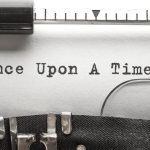Newsrooms aren’t the chaos you see on TV and in the movies. In real-life newsrooms, there’s more of a method to who does what, not just a bunch of yelling and paper throwing. The organization is because of the beat system. This approach to assignments helps ensure that everyone in the newsroom has a job to do and nothing gets missed.
No matter what type of writing you do, you should be an expert in your niche, the people in it, and how to cover it, just like a beat reporter is.
I’ve helped thousands of writers improve their writing. I’ve earned a full-time living writing and teaching writing for more than two decades. And I know that learning how to cover a beat can help you become an expert in any coverage area.
In this post, you’ll learn what a beat is and 15 ways to work one.
What is a Beat?
A beat is a reporter’s assigned area of coverage. Beats help to organize the newsroom, allowing reporters to be “everywhere” for the public by ensuring that ample attention is given to each area of coverage. They also allow reporters to become experts in their coverage areas, identifying stories that best serve their audiences and developing trusted, reliable sources.
What Traits Does a Great Beat Reporter Have?
Every reporter and their approach to working a beat is different. But reporters possess certain traits that make them better at working a beat. And, let’s face it, the better you are at coverage, the more sought-after beat assignment you’ll get. So, it pays to hone in on these traits.
Not a journalist? That’s OK! You still want to embrace these traits that help you cover your niche with professional curiosity and rigor.
Traits of a great beat reporter include:
- Deep Knowledge. You must have a deep understanding of the area you cover, regardless of whether it’s sports or mental health. You need to understand the current issues and players and the history and context of the beat.
- Curiosity. Great reporters are endlessly curious. They always want to learn more, dig deeper, and discover what is happening behind the scenes. They don’t take things at face value, always questioning what they’re told.
- Networking Skills. You’ll never get the scoop without people. Being a beat reporter means cultivating sources and building relationships with people in the field. This networking takes time, patience, and good interpersonal skills. Once people trust you, they’ll share information with you that they normally wouldn’t.
- Writing Skills. Writing clearly, succinctly, and engagingly is a key skill. If you can’t unpack a challenging topic for your audience, you don’t understand it well enough.
- Ethics. A great beat reporter has high ethical standards and is committed to nothing but the truth. This value means avoiding potential conflicts of interest and being fair and accurate in their reporting.
- Adaptability. The news cycle is constantly changing, and a beat reporter needs to be able to adapt quickly. You might need to change a story at the last minute, work late to cover a breaking news event, or learn about a new topic quickly.
- Resilience. Reporting can be tough, with long hours, seemingly constant deadlines, and dealing with difficult or sensitive subjects. A great beat reporter must have the resilience to keep going even when things get tough.
- Investigative Skills. A great beat reporter can dig deeper and make connections that others miss. It requires research, attention to detail, and thinking critically and analytically.
- Attention to Detail. A beat reporter must pay close attention to detail. Accuracy is paramount, and the little things matter.
- Time Management. Journalists often work under strict deadlines. A good beat reporter knows how to manage their time effectively, prioritizing tasks and ensuring they can complete their work on time.
How the Beat System Applies to Other Types of Writing
I referenced it earlier, but it’s worth getting into more. The ability to work a beat well is just one of the skills I learned from journalism that has applied in other areas of my professional life. I am insatiably curious, which serves me well in teaching, writing, and editing. Dare I say it even serves me well in life?
I truly believe that learning how to work a beat well will help make you a better writer. You’ll never long for something to write about — that’s for sure.
Knowing how to work a beat can help you as a:
- Author. Authors usually write in a certain genre (e.g., mystery, romance, science fiction, etc.) or subject matter (e.g., stories about immigrant experiences, novels set in a certain time period or location, etc.). Knowing how to work a beat allows you to become steeped in this world and craft.
- Screenwriters. Like authors, screenwriters often specialize in particular types of stories or genres, developing a deep understanding of the conventions, themes, and structures that work best in that area.
- Copywriters. In marketing and advertising, copywriters often specialize in a certain industry or type of copy. Knowing how to work a beat means understanding how to apply your expert skills to an individual industry or several.
- Technical Writers. Technical writers must be able to communicate complex information in a way that people can understand it, just like a beat reporter.
- Content Writers. You know who is one of the greatest authorities in and on any area? The journalist who covers it. Understanding how to work a beat helps a content writer know how to become immersed in a niche.
- Academic Researchers. In academia, researchers focus on specific areas within their field of study, allowing them to develop deep expertise and contribute to the body of knowledge in that area. It means having a deep understanding of what’s there and how to build on it in a meaningful way.
In short, knowing how to delve into an area so deeply can benefit any writer because all writers are specialists in some part of the craft and in the area they’re writing for/about.
15 Tips for Working Your Beat
Now that you understand how helpful knowing beats are, how does this approach to information-gathering work? How do you learn how to work a beat? Here are 15 of my best tips.
1. Know A Lot
Have you ever heard someone referred to as a “jack of all trades and a master of none”? This cliche sort of describes journalists. Journalists know a little bit about many topics because it’s their job to become quasi-experts on whatever they cover. They have to do this to master journalism.
To be a “master” journalist, you must be naturally curious and love learning. You need to learn as much as you can about what you’re covering as quickly as possible. The more you know, the better stories you will identify, the more intelligent questions you’ll ask, and the more effectively you will serve the public.
2. Understand the Area’s Background
Research the area you’re assigned to cover. You don’t have to go back to Aristotle and the beginning of thought in your area, but understanding the foundations is essential.
What are the big stories that have happened there? What are important ongoing stories that you’ll need to follow up on? You need to know the beat’s history and what’s important to the people there now.
3. Know the Law
Understand the laws that govern your beat. What information are you legally entitled to, and where can you get it? What information should you request but know you may not get because it legally doesn’t belong to the public? Knowing the law in your beat helps establish and build your credibility. It also helps you know where the sensitive areas may be so you can study how to present them fairly and accurately. And it leads to better stories and more advanced coverage for your readers.
4. Meet People
Introduce yourself to the people you’re going to cover. Make them part of your professional network.
If a well-liked reporter is leaving that beat, ask him/her to take you out and introduce you to sources. This helps lend you that reporter’s credibility.
If not, take business cards to distribute and just go introduce yourself to key people in your beat. Can’t meet up in person? No problem. Introduce yourself online. LinkedIn anyone?
Don’t ask for anything during these visits. They are just for introductions and the beginning step toward establishing a strong professional relationship.
While meeting everyone in your beat initially is impossible, don’t focus solely on meeting the movers and shakers. People like administrative assistants and the group who gather at the local coffee shop will be some of your best sources of ideas and information. Don’t forget to meet them.
5. Understand Expectations
Understand what your editors expect you to produce from your beat. How many stories do they expect, and how frequently? What stories are they interested in? What do they consider the most important aspects of your beat? As the old saying goes, “News is whatever the editor thinks it is.” You should at least understand your editor’s expectations from your area.
6. Be There
There is no substitute for personal contact with your sources, especially when you’re new to a beat. You need to develop relationships with the people who work and live in your beat so they will trust you, rely on you, and help you provide important information. Don’t try to work your beat from your office chair. Go out into your beat every chance you get.
Here’s more on why you should leave your desk.
7. Be Immediate
Be ready when big news breaks in your beat. Have a sense of urgency and understand when something needs to be covered in person and live. Know when you need to pivot your existing content plans. Business, as usual, doesn’t work when there’s an opportunity for real attention or a need for breaking coverage.
8. Identify Great Sources
It won’t take long for you to identify which sources are easy to talk to, readily available, don’t mind being interviewed, and give great information. Knowing the strong, quotable sources in your beat is important because they are key to your coverage success. It’s equally important not to rely too heavily on them, making it seem like they are your only sources.
Know who the foundational figures are in your area. Be ready to quote them but also to add new voices to the mix.
9. Question Every Story
Working a beat means you’ll have more ideas than you have time. Question the value of writing every story and the cost of not doing so.
Every story you write means a different story won’t get told.
Ask yourself how important each topic is to your readers. If you don’t know, then you need to get to know your audience better and question what they want and expect from you.
Also, don’t forget about stories. Just because something doesn’t happen for your immediate deadline doesn’t mean it’s not newsworthy. Keep a running list of story ideas so you’re never without content plans. If something isn’t decided or a question can’t be answered right then ask the source when you should contact them again, mark it on your calendar, then always follow up.
Here’s more on finding story ideas.
10. Get Answers
Never let a question go unanswered. Ask a question as often as you have to until you get an answer or the source outright refuses to answer. Doing so means your readers never will wonder why you didn’t ask or accuse you of not asking tough questions on purpose.
On a related note, be sure you understand the answers you receive. If you don’t, you need to ask the source to explain. It’s unacceptable to end an interview without understanding your source’s answers. Stay until you figure out what’s going on.
Never assume that everyone else understands except you. As soon as you do that, your editor will ask you what something means, and you’ll look incompetent when you can’t.
Check out these 10 Simple Steps for Stronger Reporting.
11. Do a Favor
A quick way to build relationships with sources is to do favors, if possible. I added that “if possible” because you certainly shouldn’t do anything illegal or unethical for a source. But if you can bring them a few extra copies of a newspaper they’re in, put an item in a calendar listing for them, or assign a photographer for their organization’s positive (but still newsworthy) photo opportunity. People will help people who help them.
12. Accentuate the Positive
News doesn’t have to be negative. Don’t forget to write about the positive things in your beat. We need and want happy stories. Sources will resent you if you only contact them when there’s an issue. Every beat has positive, fun stories too. Don’t forget to write them.
13. Protect Your Sources
If you tell someone you’ll keep information off the record, keep it off. Keep that secret if you promise not to say who told you a piece of information. Sources who trust you are invaluable.
14. Be Accurate
It should go without saying, but just in case… be accurate. The people in your beat will shut down and make it extremely difficult for you to do your job if they don’t trust you to get information right. Plus, no one wants to be known as the reporter who can’t get it right. Do everything you can to ensure all of the information you release is accurate, fair, and balanced. Failure to do so will make it difficult for you to keep a job in any type of writing.
15. Know Your Role
You spend so much time relationship building in your beat that it can become difficult to report negative things or tell a client no. You will end up reporting something negative about a source who you really like. You will have to tell your favorite client that you won’t do something for them because it isn’t a sound practice. People will surprise you with the things you do. Remember that your job is to do the right thing, however inconvenient it may be. Never dedicate yourself to anything but the truth.
Working a Beat Means Expertise
Working a beat well is difficult. Most of your work is never seen by your readers because it includes things like content development, relationship building, time management, and balancing reporting for multiple mediums while still doing in-depth research.
Perhaps the best advice for working a beat is to understand that the work never is done. There’s always one more edit that can be done or one more story to be written.
You have to develop an understanding of the people who care about your coverage area and what they need and want from you, then you have to set personal limits.
Do as much as you can to cover your beat to the fullest in the time that you have. Really, that’s all anyone can ask.




